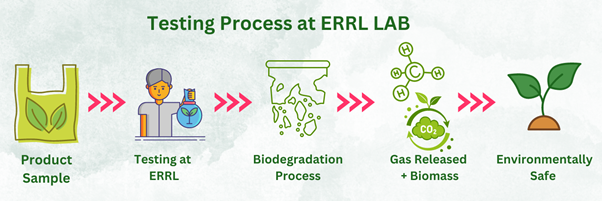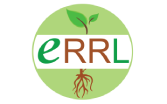IS 17899T :
Assessment of biodegradability of plastics in varied conditions

Biodegradable plastics as per Rule 3 (ac) of PWM Rules is “plastics, other than compostable plastics, which undergoes degradation by biological processes under ambient environment (terrestrial or in water) conditions, without leaving any micro plastics, or visible, or distinguishable or toxic residue, which has adverse environment impacts, adhering to laid down standards of Bureau of Indian Standards and certified by the Central Pollution Control Board”.
Our ERRL lab has BIS certification for conducting IS 17899t at our facility. The testing process involves several important steps :
Step 1 : Sample Preparation
In this initial phase, proper sample preparation is crucial for obtaining reliable and meaningful test results.
Step 2 : Aerobic or Anaerobic Biodegradation Process
After sample preparation, the biodegradation process is initiated. The testing can be conducted under aerobic (with the presence of oxygen) or anaerobic (without oxygen) conditions, depending on the specific requirements of the test and the material being evaluated. The biodegradation process continues until 90% biodegradation is achieved, allowing sufficient time for microorganisms to break down the test materials.
Step 3 : Heavy Metal Analysis
Following the biodegradation process, step 3 involves analyzing the samples for the presence of heavy metals. This analysis is essential to assess any potential environmental risks associated with the materials being tested and their biodegradation by-products.
Step 4 : Ecotoxicity Testing in Plants and Earthworms
In the final step, ecotoxicity testing is conducted using plants and earthworms. These tests help evaluate the potential toxic effects of the test materials and their degradation by-products on the environment and living organisms. The tests are crucial for understanding the overall environmental impact and safety of the materials.
Overall, ISO 17899T provides a comprehensive assessment of the biodegradability and environmental safety of the tested materials. By conducting these rigorous tests, your lab can contribute to ensuring the development and use of environmentally friendly and sustainable products, supporting responsible environmental practices.
Types of products tested under this standard – biodegradable bottles, tableware, cutlery, fabrics, cards, shoes, films, etc.
